Blog Post - May 23, 2022
Building a Well to Make a Safer World
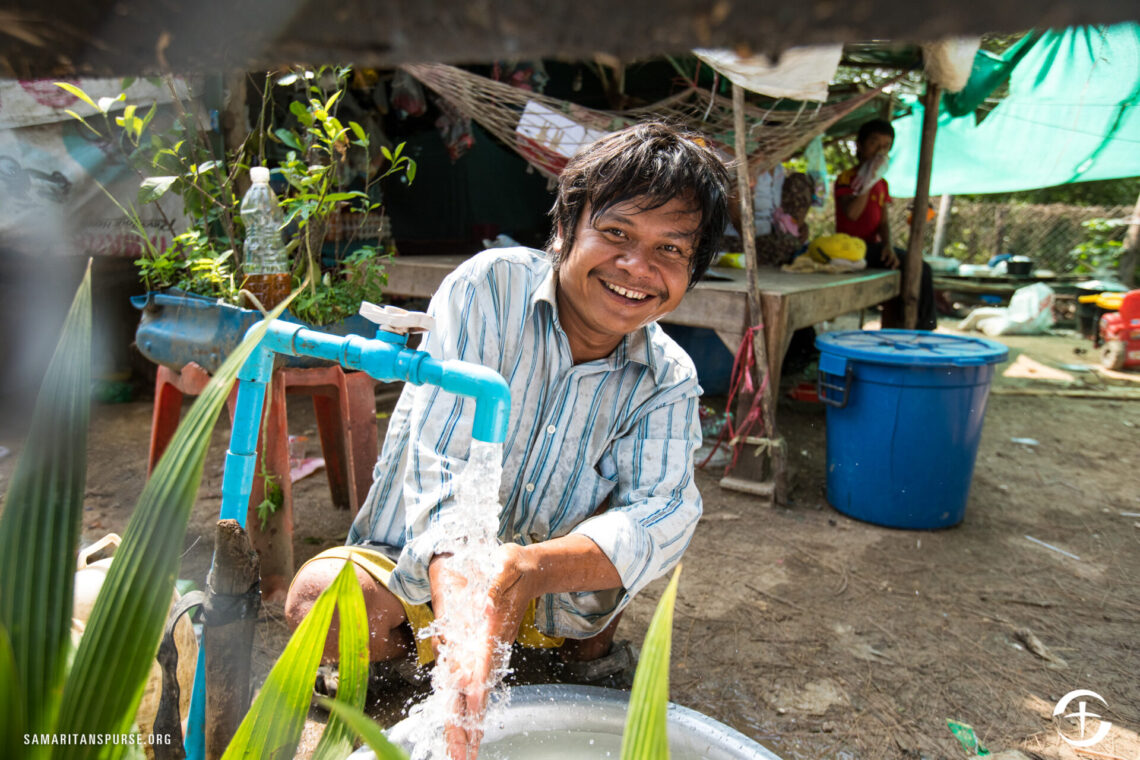
Oasis of Hope project water taps in homes
Two months ago, you voted to fund a freshwater well in Cambodia. Today we are back to provide more context and information on the effort. We will explore the fundamental need for clean water, the location of our well, and how it plays a critical role in minimizing the exploitation of a vulnerable community.
The Difference of Clean Water
For part of the world, turning on a kitchen faucet, placing a cup underneath the flow of water, and taking a sip—all without risk of getting sick—is so natural that it occurs nearly without notice.
However, this simple act is not the same in every home around the world. Access to clean water is far from universal due to causes such as natural disasters, pollution, geography, discrimination, socioeconomic status, insufficient infrastructure and/or regulation. As a result, people suffer from preventable illnesses caused by consuming contaminated water. The rippling effects of this touch every part of life.
According to the World Health Organization, “At least 2 billion people [must] use a drinking water source [that is] contaminated.” This, paired with poor hygiene practices and insufficient sanitation options, leads to over 800,000 deaths annually.
David Philips, from Samaritan’s Purse (SP) adds, “More people die because of lack of access to clean, safe drinking water than AIDS, Measles, and Malaria combined.”
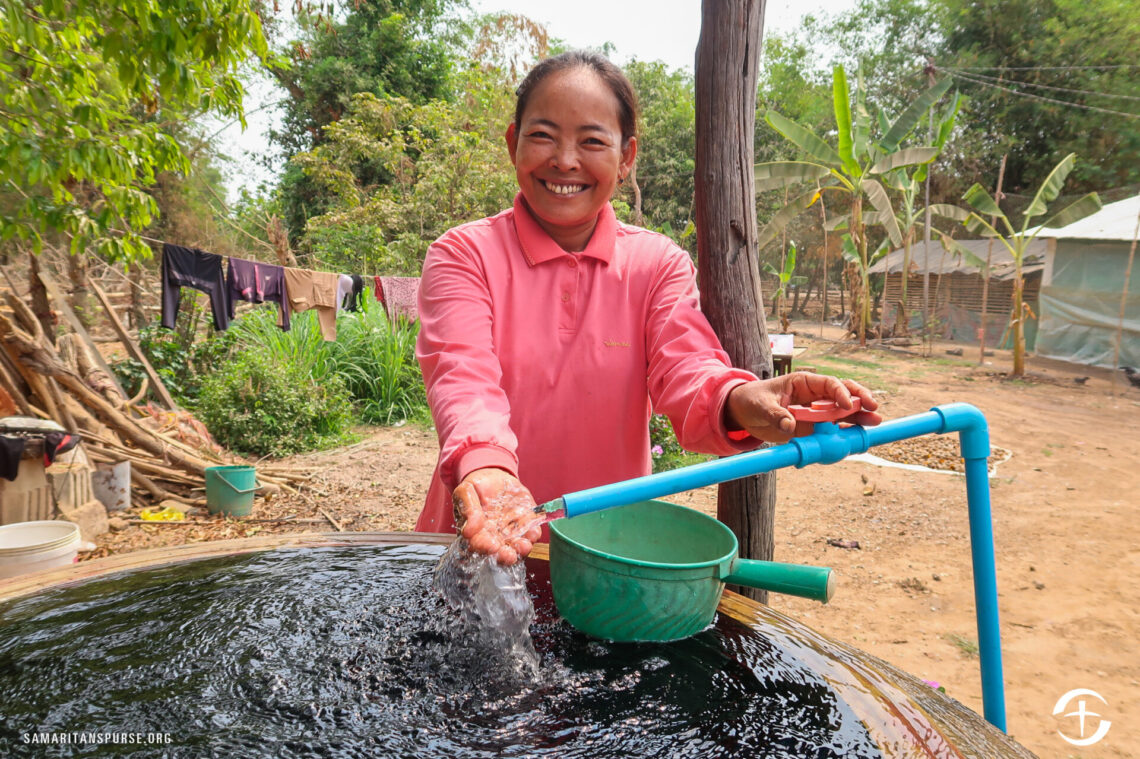 |
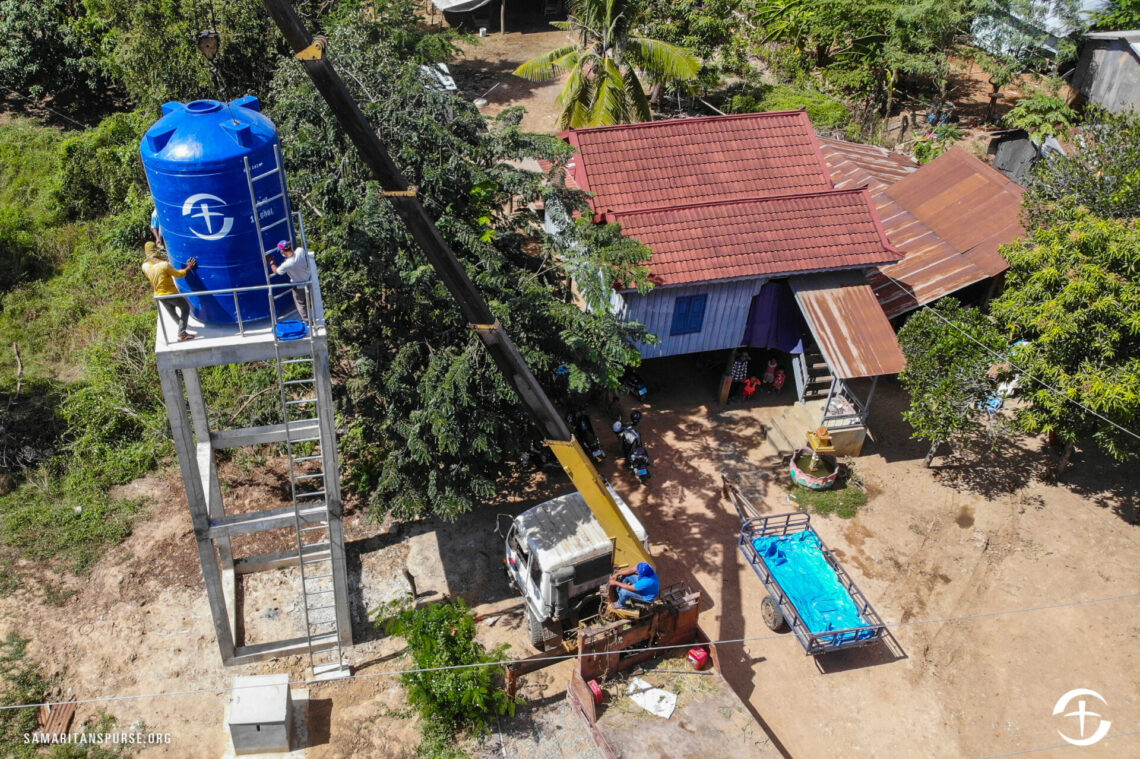 |
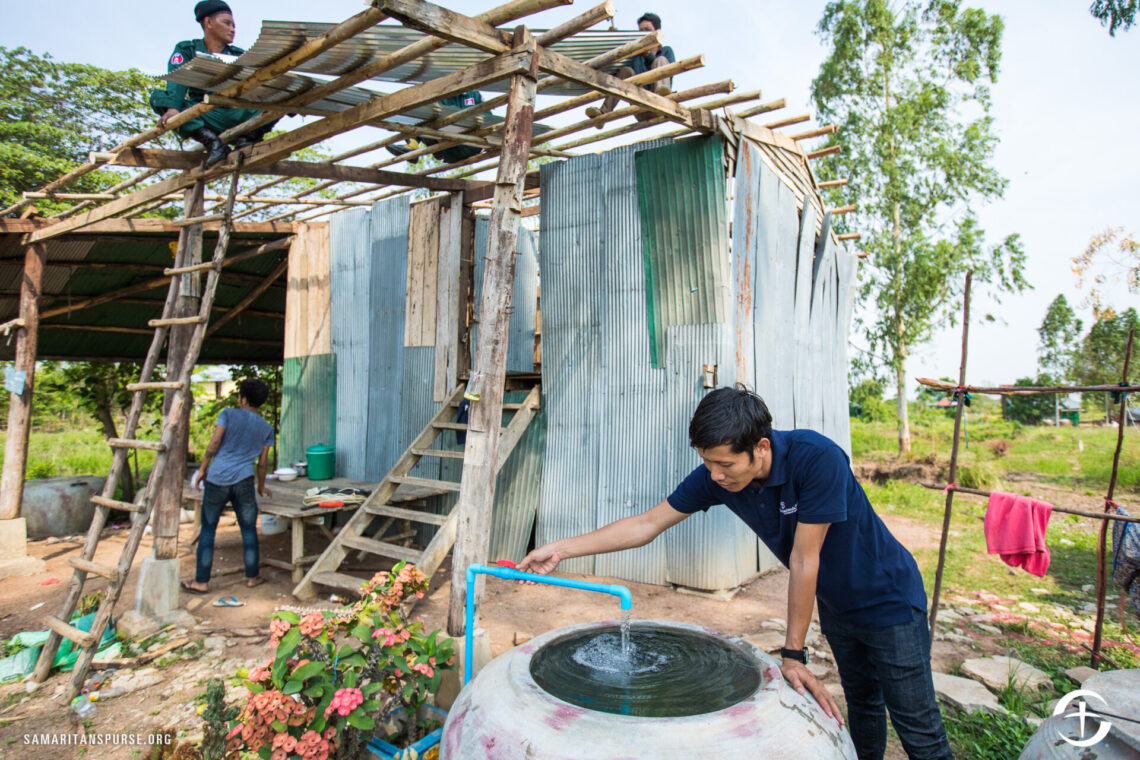 |
Photos courtesy of Samaritan’s Purse
That’s why SP tailors and layers their programming to consider and honor root cause issues, offering support and community partnership to address the challenges long-term. When clean water sources are made available, health outcomes improve dramatically. Life, learning, livelihood, and leisure activities that were stopped because of water access issues become more readily available.
Why Cambodia?
The freshwater well that we are funding will be installed in a Western Cambodian district near the Thai border. The project is part of a larger, three-year counter-trafficking initiative to increase protection of Cambodians who are at risk of exploitation. Matthew Swenson, a member of SP’s team, noted that they repeatedly find water access to be a root cause not only of health outcomes, as mentioned above, but also of migration and trafficking across the border.
“The reason this [clean water] is so important is because for a lot of the year there’s drought in the area. There’s just not water and there are no livelihood opportunities.” Matthew goes on to explain how that creates a complex environment, often forcing people to travel to Thailand for employment to provide for their families. Traffickers who are attuned to this vulnerability, masterfully lure and exploit them with promises of a better way to support family members.
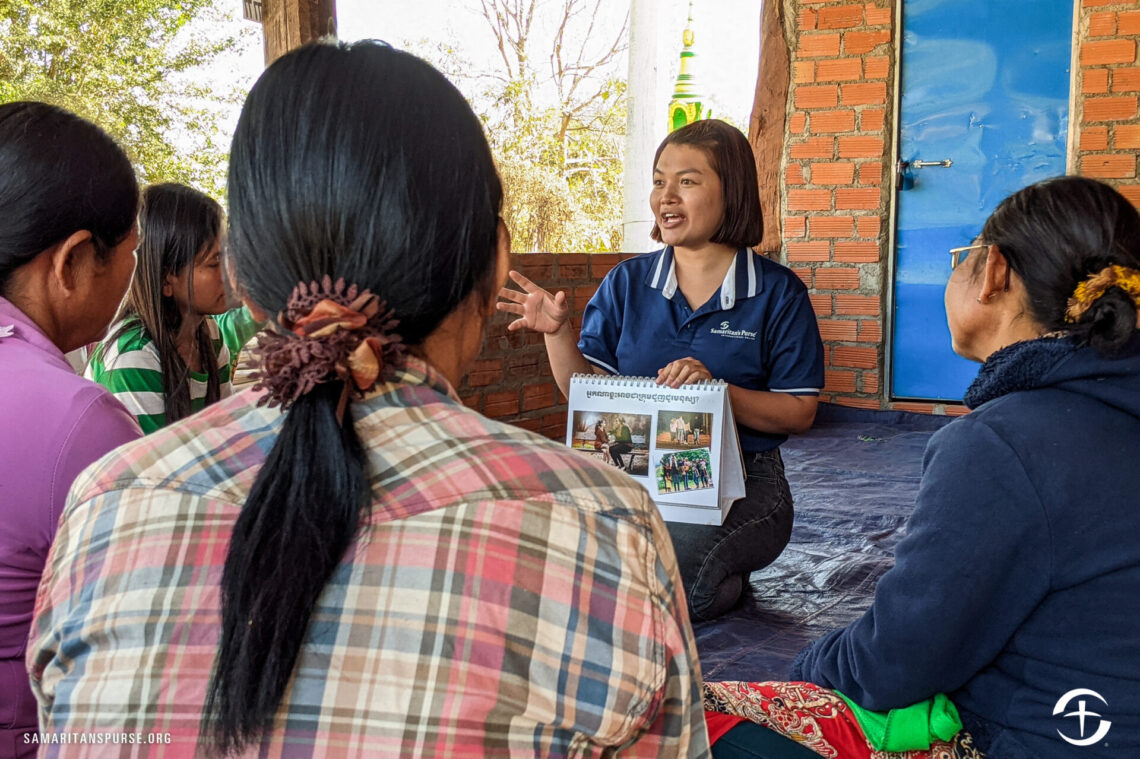 Photos courtesy of Samaritan’s Purse |
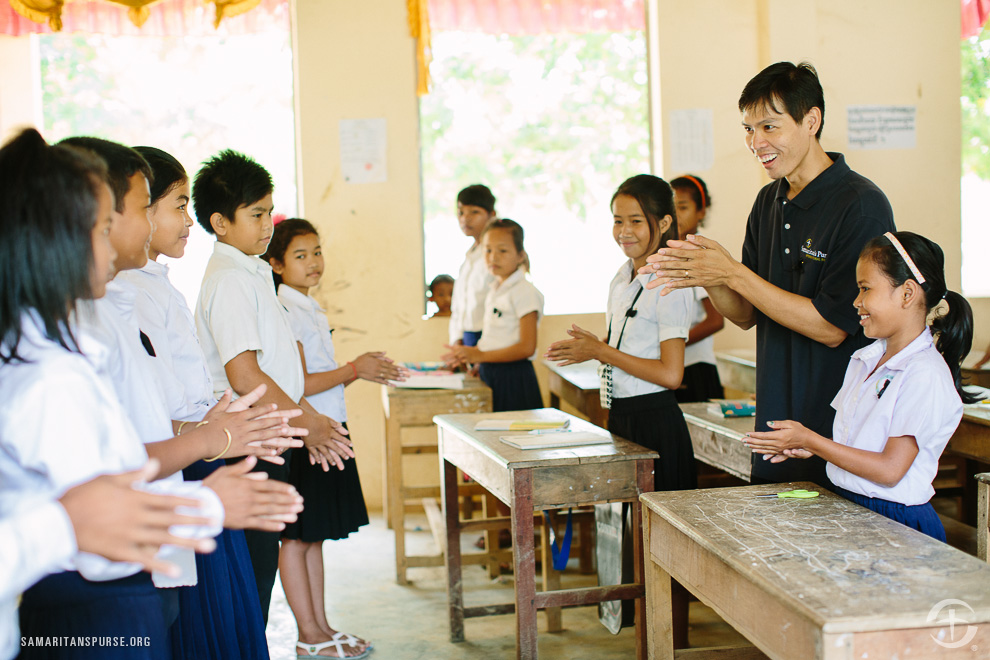 Water for Schools program in Poipet, Cambodia. |
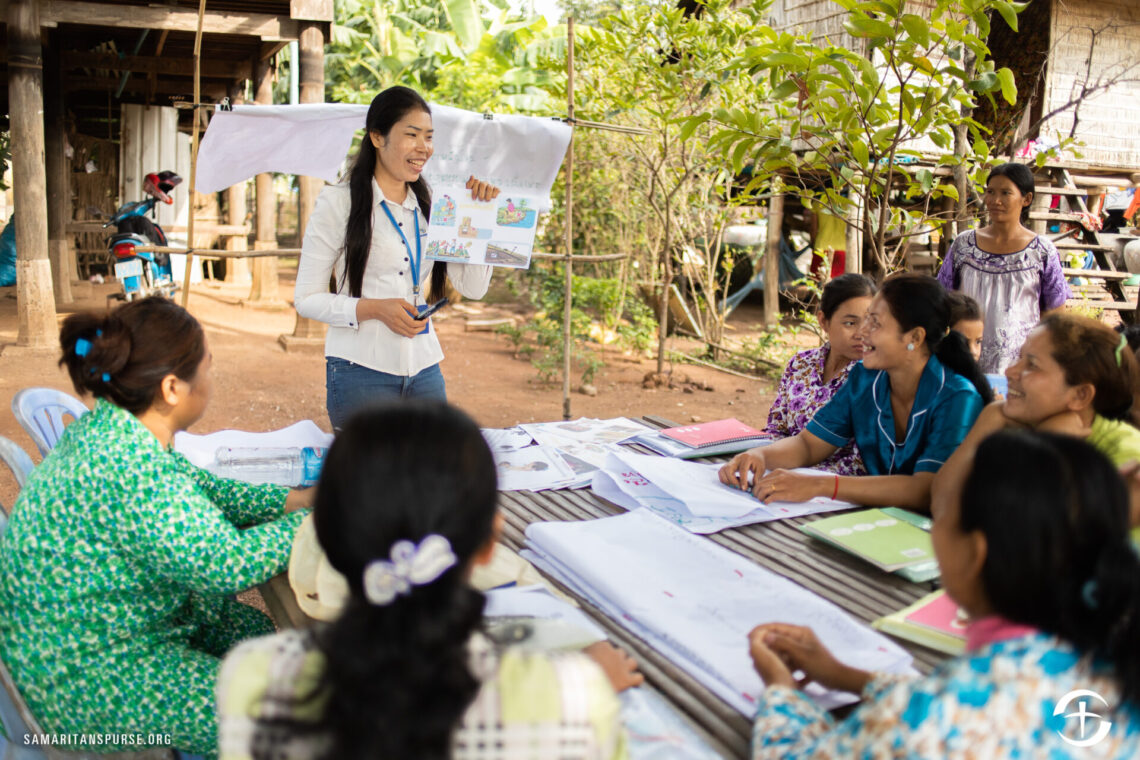 SP staffer training leader mothers in healthy living |
“The cool thing about this project is that as we’re providing clean water, we’re also doing health education, helping kids stay in school, offering livelihood training and development. It’s keeping families together, helping people run businesses, and thrive.” – Matthew Swenson, Samaritans Purse
Speaking of a similar well installation program that was recently completed in a nearby community, he says there is clear evidence of change. Traffickers are not there anymore; they have found that people no longer have a need to migrate.
At the end of this year, even before the full three-year initiative is complete, Samaritan’s Purse projects that 7,920 Cambodians will have a freshwater tap stand in their individual homes, allowing them to experience safety at multiple levels.
Don’t miss more updates! Follow Dairyland Electrical Industries on Facebook or Instagram to stay up to date on the freshwater well project.